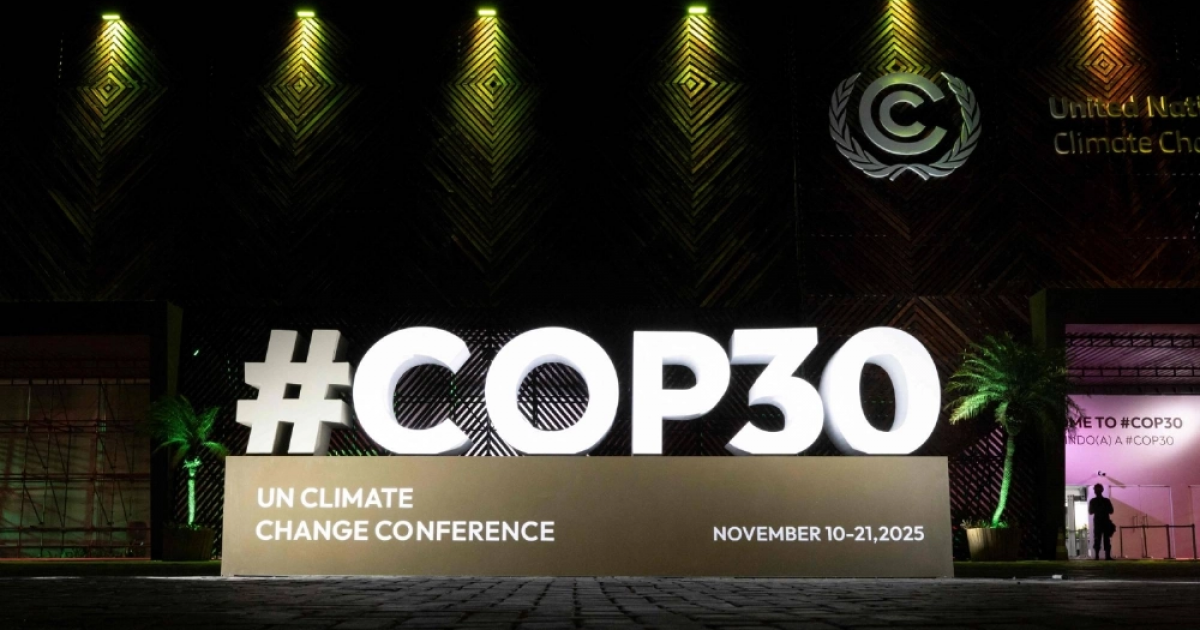The fifth day of COP30 in Belém has raised renewed concerns over the credibility and direction of the global climate process, as the presence of corporate lobbyists, policy reversals and political divisions overshadow negotiations.
More than 1,600 fossil fuel lobbyists have gained access to this year’s UN climate conference—more than the delegation of any single country except host nation Brazil. According to an analysis by the Kick Big Polluters Out (KBPO) coalition, one in every 25 participants at COP30 represents fossil fuel interests.
This marks a 12% increase from last year, and the highest proportion since tracking began in 2021. In the past five years alone, nearly 7,000 lobbyists linked to oil, gas and coal industries have attended COP conferences.
Liane Vandamme, senior advocate at the Center for International Environmental Law (CIEL), said the scale of corporate presence shows that “this is no longer climate governance—it is corporate capture.”
The European Union arrived in Belém pushing for higher global climate ambition. But back home, its own climate policies are being softened.
On Thursday, the European Parliament approved a proposal to cut emissions by 90% by 2040 compared to 1990 levels. The target includes a controversial allowance for 5% foreign carbon credits and falls short of scientific recommendations.
MEPs also backed weaker rules on deforestation-linked supply chains and eased requirements on corporate green policies—steps critics say undermine the bloc’s long-standing position as a climate leader.
Analysts say the EU’s retreat from its more ambitious policies over the last two years has been justified under the argument of “competitiveness,” but risks diminishing its global standing.
In Belém, pressure is mounting on the Brazilian COP30 presidency to accelerate negotiations on a global agreement to phase out fossil fuels altogether.
Seventeen countries have already endorsed the Fossil Fuel Treaty Initiative, and climate activists are demanding stronger political commitment after the slow progress made since the “Just Energy Transition” pledge at COP28 in Dubai.
US Political Turmoil Spills Into COP30
The absence of the United States delegation has been widely noted.
Christiana Figueres, one of the architects of the Paris Agreement, likened the Trump administration’s behaviour to “small children,” saying the US had “lost global credibility.”
Former US House Speaker Nancy Pelosi, attending privately, said America’s no-show reflects political deadlock and Republican resistance to sending a bipartisan delegation.
President Donald Trump has withdrawn the United States from UN climate diplomacy and has opposed anti-pollution rules at other international forums.
Gender debate adds tension
A contentious dispute over the definition of “gender” has disrupted negotiations on a new Gender Action Plan aimed at strengthening women’s roles in climate policymaking.
Countries including Argentina, Paraguay, Saudi Arabia, Russia, and Iran are pushing for a narrowly defined term, while the EU, Canada, and Norway support references to intersectionality and diverse gender identities.
Experts warn that narrowing the definition would roll back long-established UN language.
Climate change disproportionately affects women—deepening care burdens, limiting economic power, and increasing risks of violence. Studies project that 236 million women and girls could face food insecurity by 2050 due to climate impacts.
Warming trajectory remains alarming
New analysis from Climate Action Tracker shows that current national commitments (NDCs) submitted ahead of COP30 put the world on a path to 2.6°C warming—far beyond the 1.5°C limit of the Paris Agreement. Only 100 countries have submitted updated NDCs.
The Global Carbon Project estimates that fossil fuel emissions will rise by roughly 1% in 2025, despite rapid growth in renewables. Global temperature has already risen 1.3°C above pre-industrial levels, intensifying floods, heatwaves, storms and wildfires.
Health takes centre stage
COP30 launched the Belém Health Action Plan, the world’s first international climate-and-health framework. It focuses on risk monitoring, digital health technologies, stronger health systems and adaptation capacity.
The Climate and Health Funders Coalition has pledged an initial $300 million, though experts say countries such as India require $643 billion by 2030, and Bangladesh’s health adaptation funding remains insufficient.
At the Bangladesh Pavilion, experts highlighted locally led, nature-based solutions—pointing to the Sundarbans and Hakaluki Haor as examples of ecosystem-based adaptation that blends science, community knowledge and local governance.
Speakers emphasized the need for predictable, equitable finance to sustain long-term resilience and biodiversity.



